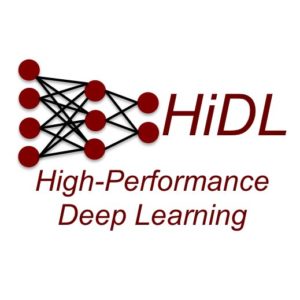Deep learning is one of the hottest topics this year at SC16. Now, DK Panda and his team at Ohio State University have announced an exciting new High-Performance Deep Learning project that aims to bring HPC technologies to the DL field.
Welcome to the High-Performance Deep Learning project created by the Network-Based Computing Laboratory of The Ohio State University. Availability of large data sets like ImageNet and massively parallel computation support in modern HPC devices like NVIDIA GPUs have fueled a renewed interest in Deep Learning (DL) algorithms. This has triggered the development of DL frameworks like Caffe, Torch, TensorFlow, and CNTK. However, most DL frameworks have been limited to a single node. The objective of the HiDL project is to exploit modern HPC technologies and solutions to scale out and accelerate DL frameworks.
According to Dr. Panda, as a first step, we have co-designed the popular Caffe with CUDA-aware MPI libraries (specifically with MVAPICH2-GDR 2.2 release).
OSU-Caffe 0.9 Features:
- Based on Nvidia’s Caffe fork (caffe-0.14)
- MPI-based distributed training support
- Efficient scale-out support for multi-GPU nodes systems
- New workflow to overlap the compute layers and the communication
- Efficient parallel file readers to optimize I/O and data movement
- Takes advantage of Lustre Parallel File System
- Exploits efficient large message collectives in MVAPICH2-GDR 2.2
- Tested with
- Various CUDA-aware MPI libraries
- CUDA 7.5
- Various HPC Clusters with K80 GPUs, varying number of GPUs/node, and InfiniBand (FDR and EDR) adapters
For downloading OSU-Caffe 0.9 library and the associated user guides, please visit the following URL: http://hidl.cse.ohio-state.edu
DK Panda will present more details at several talks at SC16.







Speak Your Mind